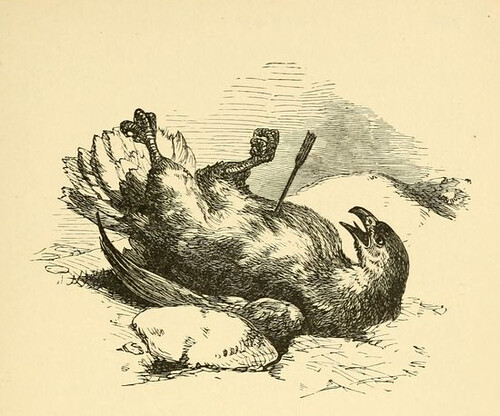HODIE (Roman Calendar): pridie Kalendas Apriles, the day before the Kalends of April.
MYTHS and LEGENDS: The art image for today's legend shows Cupid Discovers Psyche; you can also see the legends for the current week listed together here.

TODAY'S MOTTOES and PROVERBS:
TINY MOTTOES: Today's tiny motto is: Semper sursum (English: Always upwards).
3-WORD PROVERBS: Today's 3-word verb-less proverb is Acti iucundi labores (English: Hard work, once completed, is pleasant).
AUDIO PROVERBS: Today's audio Latin proverb is Si satis est, multum est (English: If it is enough, it is a great deal). To read a brief essay about this proverb and to listen to the audio, visit the Latin Via Proverbs blog.
PUBLILIUS SYRUS: Today's proverb from Publilius Syrus is: Etiam capillus unus habet umbram suam (English: Even a single hair has its shadow).
ERASMUS' ANIMALS: Today's animal proverb from Erasmus is Ibyci grues (English: The cranes of Ibycus; from Adagia 1.9.22; you can read about the cranes, the avengers of Ibycus, at Wikipedia).
BREVISSIMA: The distich poster for today is Laetamur Graviora Passi. Click here for a full-sized view.

And here are today's proverbial LOLcats:


TODAY'S FABLES:
MILLE FABULAE: The fable from the Mille Fabulae et Una widget is Harundo et Quercus, a story about how it is better to bend rather than break.
FABULAE FACILES: The fable from the Fabulae Faciles widget is Aquila et Sagitta, the story of the eagle, the arrow, and the eagle's own feather (this fable has a vocabulary list).
Greek Bible Art - and Latin and English, too. Below is one of my Greek Bible Art graphics; for the individual Greek, Latin and English versions of the graphic, see the blog post: ἀπὸ τῶν παιδίων τῶν Εβραίων τοῦτο. De infantibus Hebraeorum est hic. This is one of the Hebrews' children.

